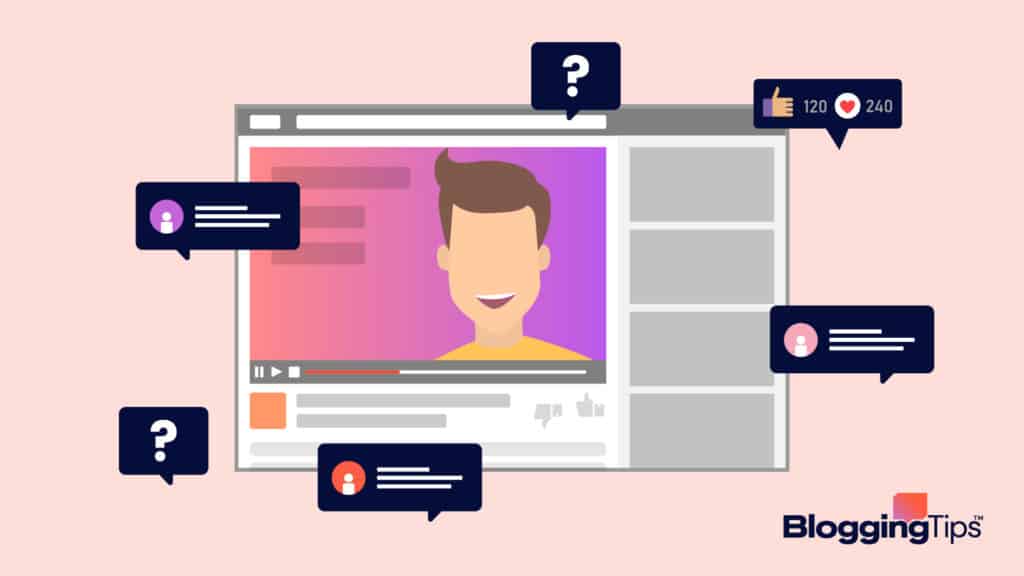The Internet’s a great leveler.
What I love best is that is allows new and small businesses to compete on a level footing with big, established businesses.
Why?
Because when people visit your blog or website there’s no need for them to know that it’s just you working from the dining room table whenever you get a spare moment.
In fact, your website can and should do the opposite.
Read on if you’ve got 10 minutes and want to know how to win business online. This is a long post.
Why Winning Business Online is Important
Your website or blog should instantly inspire confidence in people and make them think that you’re a large, established business.
Why?
Because most people don’t want to take a chance on a small or new businesses.
They want to do business with someone who they know will still be there to help them and provide the service or product they’re looking for a few years down the track.
They don’t want to deal with a fly-by-night.
They’re looking for quality products or services from a trusted source.
Who would you rather take your business to?
A small, new business who looks as if they set up their business on a shoestring and might fold over night, or a large established one with years of experience and a proven track record?
I’d go for the second alternative too.
But here’s the great news for new or small businesses.
The Internet allows small and new businesses to compete on a level playing field so no one who visits your website would ever guess that it’s small or new.
Yes, you need to spend money on your website to set it up effectively but probably not as much as you think.
The main keys are planning it and finding a competent web designer who can design a website you’ll be proud of.
How to Win Business Online – My Personal Experience

I’ve worked from home running my own Internet business for 12 years.
For the first nine years I worked from and lived on a small island in New Zealand with a reputation as a refuge for alternative life-stylers, but all my clients lived in the closest city, and most of them had no idea about the size or location of our business.
I never lied to people but I did add a PO Box address in the city to the footer of our website, and although it was just me and my husband working together I referred to the ‘team’ in our web copy so people may have assumed we were larger.
We work with graphic designers on a freelance basis so there were always at least three of us involved in a web design project, the perfect small team for website design: a technical expert, a planner and writer and a graphic design, all with long experience designing for the Internet.
But it wasn’t just the PO Box in the city or referring to the ‘team’ that helped us.
Most importantly our website looked professional and was easy to use.
It allowed our target audience – small business owners – to quickly find the information they were looking for and easily contact us by phone or email.
Our website let us to compete on a level footing with bigger fancier web agencies in the city.
Your website is prime real estate for your business.
It may be the first contact for prospective clients with your small business.
If you told someone about your website in person or they heard about it from someone else, this is your big chance to convert those leads into clients and business.
You may not get a second chance so do it right.
First impressions count and are made in the blink of an eye.
If you were meeting a prospective client you’d put on smart clothes, brush your hair and grab a notebook and pen so you could take notes.
If people don’t meet you in person but they do meet your brand online they’ll quickly be assessing how trustworthy, competent and reliable you are based solely on the first impression they get from your website.
The two keys are:
- 1. Does your website look appealing?
- 2. Can people find the information they want fast?
If you’re not getting new business online your website may be letting you down.
Can you honestly say your website does you proud? Or does it look cheap? Thrown together? Unfinished?
How do you want people to see you and your business?
Design a website you can be proud of and that will do you and your business justice.
If your website’s uniform and uninspiring then it’s letting you and your business down and losing you money.
The time for dabbling with Internet marketing is over.
Now’s the time to sort out your website once and for all and design a site that you and your clients will love.
How to Win Business Online

1. Act like you mean it.
Get your own domain name and use it for your email address as well.
You can easily get [email protected] to forward to your existing email server so you can read all your emails in one place.
Using a generic domain name or email address makes you look unprofessional.
If you have a blog integrate it into your business site and domain name and get a web design that does you justice.
2. Work out what the goals of the site are
They’re probably not the same as your business goals.
You need to be very clear about what the aim of your website is.
Sum it up in a maximum of two sentences.
3. Define the target audience
Who’s visiting your website and why?
The more you know or can guess about them the better.
A website should be designed for the people who use it.
Consider your site visitor’s gender, location, age, income, problems and interests.
4. How can you help those people?
Imagine a website that would appeal to these people.
What topics would it cover? What would the main and sub-sections be called?
Do you have a slogan which tells people right away what your business does and reassures them that they’ve come to the right place?
5. Work out your unique selling point
Even if you’re not actually selling anything online how are you going to differentiate your business from other similar businesses?
Check out the competition.
Often just having a professional, well designed website will make you stand out from the crowd.
Even big businesses who spend a lot of money on website design make mistakes.
Remember Flash?
Many businesses spent a small fortune on Flash websites but there aren’t many around today.
It turns out most people don’t want flashy animation or fancy sounds.
They just want to get the information they’re looking for fast.
6. Watch your language
Spend time getting the copy on your website right.
Use simple words and plain English.
Unless you’re aiming at a small group of people who will understand it avoid jargon.
Show people the benefits of choosing your services and products.
Use numbered or bullet pointed lists they can quickly scan and check the wording.
Does the language you use reflect your branding and company values?
Does it speak to your target audience?
For example if my target audience was students I’d use different words than if I was trying to appeal to baby boomers.
If this isn’t your thing invest in a professional web copywriter.
People follow the crowds.
Get some testimonials up for social proof because it’s easier to believe someone else saying your business is great than saying it yourself.
You can use Twitter, LinkedIn, Facebook or another social media site to build up a following of people who’ll back you and recommend you.
Of course, you’ll need to return the favour so pick a strong team.
8. Use calls to action
You’ve worked hard to get someone to visit your site.
Make sure you can convert them into a customer by clearly telling them what step you want them to take next. Refer back to your goals.
- Do you want them to buy something online?
- Subscribe to your email mailing list?
- Call you for more information?
Make it clear to your site visitors what step you want them to take and remind them to do it on every page of your website.
9. Social media consistency
Branding has a bad reputation but it’s unavoidable and strong branding is vital for online success.
First impressions count.
People will be judging you, your products and services from the second they set eyes on your photo, blog or website.
Make it consistent if you branch out into social media and keep your Twitter, blog and Facebook page looking the same.
People feel reassured when they know what to expect. Don’t confuse them.
10. Have a soft launch
There might be problems to begin with.
Put the new site up and try it out.
Ask some friends to test it for you on different computers and browsers.
An experienced web designer should do this for you.
Wrapping Up
If you follow these guidelines you’ll end up with a website that you can be proud of. The website you deserve, one you really want to tell people about that does justice to you and your business. That’s the kind of website you need to win business online.





